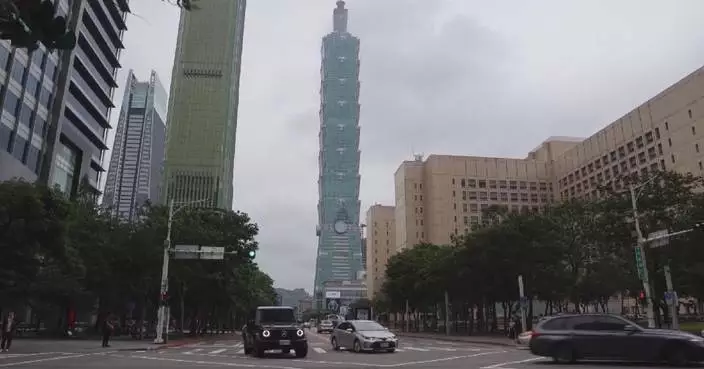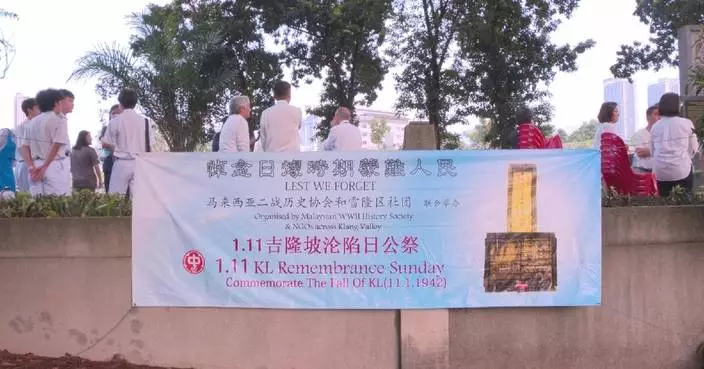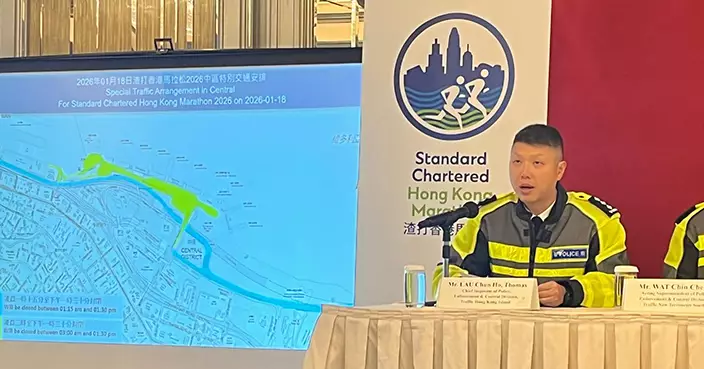Feature · News

China's visa-free travel drives holiday tourism surge across China

Energy Leaders Abunayyan Holding and Nextpower Complete Formation of Joint Venture, Nextpower Arabia

Traffic operating normally, internet remains restricted in Tehran

China’s ski resorts, ice rinks draw crowds as winter season peaks

Shops, bank set ablaze amid escalating unrest in Tehran

Chinese tourists increasingly seek tailor-made experiences in Switzerland's winter tourism boom

Horse-themed toys drive festive sales boom in China as new zodiac year approaches
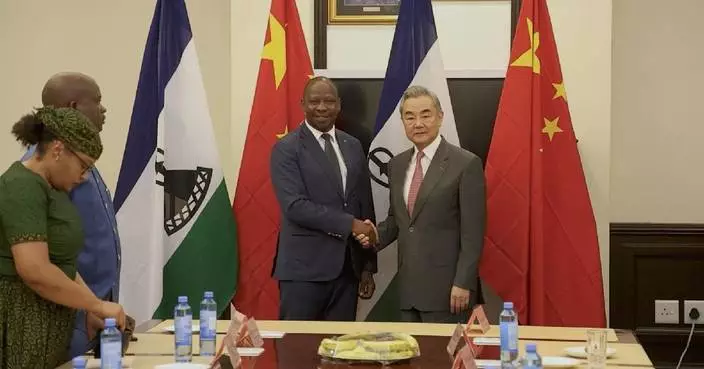
China, Lesotho elevate partnership to deepen trade, energy cooperation

Photos of Syrians fleeing violence in Aleppo as shelling leaves heavy damage
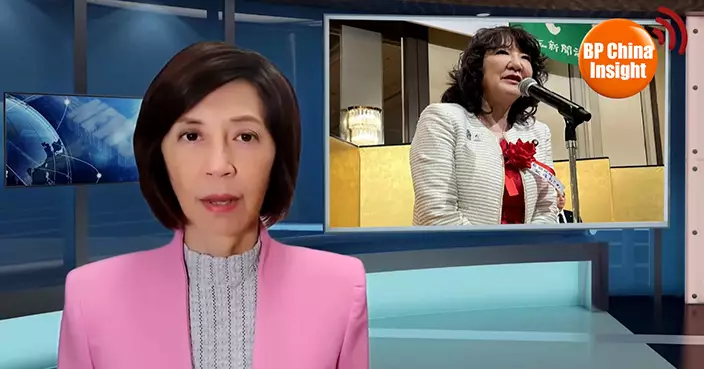
BP China Insight : Japan Seeks "Parental" U.S. Help After Repeated Chinese Retaliation

BP China Insight : Former U.S. Ambassador to NATO: Trump Obsessed with Oil; China Bets on Electricity

Three Redhill Peninsula homeowners fined $275,000 for unauthorized building works, court confirms ongoing enforcement actions

Greater Bay Area Exhibition Launches to Highlight Opportunities for Hong Kong Youth at Local Universities

Film IP fuels expansion of consumer market

Venezuelans in the US are torn between joy and worry after ousting of Maduro

Barbie® Introduces the First Autistic Barbie Doll, Championing Representation for Children through Play
Horse-themed toys drive festive sales boom in China as new zodiac year approaches
China, Lesotho elevate partnership to deepen trade, energy cooperation

Photos of Syrians fleeing violence in Aleppo as shelling leaves heavy damage

BP China Insight : Japan Seeks "Parental" U.S. Help After Repeated Chinese Retaliation
China's visa-free travel drives holiday tourism surge across China

Energy Leaders Abunayyan Holding and Nextpower Complete Formation of Joint Venture, Nextpower Arabia
Traffic operating normally, internet remains restricted in Tehran
China’s ski resorts, ice rinks draw crowds as winter season peaks
Shops, bank set ablaze amid escalating unrest in Tehran
Chinese tourists increasingly seek tailor-made experiences in Switzerland's winter tourism boom

BP China Insight : Former U.S. Ambassador to NATO: Trump Obsessed with Oil; China Bets on Electricity

Three Redhill Peninsula homeowners fined $275,000 for unauthorized building works, court confirms ongoing enforcement actions

Greater Bay Area Exhibition Launches to Highlight Opportunities for Hong Kong Youth at Local Universities
Film IP fuels expansion of consumer market

Venezuelans in the US are torn between joy and worry after ousting of Maduro

Barbie® Introduces the First Autistic Barbie Doll, Championing Representation for Children through Play
Feature·Bloggers

【Bastille Commentary】Chicken-hearted Conservatives: Sanctioning Hong Kong Judges While Trump Runs Wild

【What Say You?】Trump’s “Maduro Grab” Gets a Glossy Spin by the Usual Suspects

【What Say You?】Trump's Judicial Theater: Maduro's Fate Already Sealed

【Deep Throat】Trump's Venezuelan Oil Grab: Big Oil Not Playing Along?

The Most Laughable Lie of the New Year: Jimmy Lai's "Grave Illness" Falls Apart Under Five Hard Facts

【What Say You?】Black Riots “comrades” Thought Ukraine Was Another “Resistance”—Then the Contract Hit

Cuba's president says no current talks with the US following Trump's threats
- The Latest: Trump says Iran proposed negotiations as hundreds killed in protests
- The Latest: DOJ subpoenas central bank and threatens criminal indictment, Fed Chair Powell says
- X-Caliber Closes $182.2MM Rural PACE-X Financing for Ground-Up Construction of Ultra-Luxury Ski Community in Park City, Utah
- NBCUniversal and Graebel Win Silver in Brandon Hall Group’s Excellence in Action Awards
- Trump's legal attack on Powell underscores his aim for full control over Fed
- Stocks of credit card companies slump as Wall Street overall drifts in mixed trading
- What to know about Trump's mid-decade redistricting push ahead of the congressional elections
- Michigan's lieutenant governor drops gubernatorial bid and launches campaign for secretary of state
- Thousands of nurses go on strike at several major New York City hospitals

China welcomes foreign enterprises, long-term capital to continue expanding investment in China: vice premier
- China, Canada should leverage complementarity for mutual benefit: former Canadian PM
- China, EU agree on price undertaking guidance for Chinese electric vehicle exporters: commerce ministry
- Xi urges advancing Party self-governance with higher standards, more concrete measures
- Former Canadian PM shares family mission to promote Canada-China friendship
- Tech companies lead Hong Kong shares rally on Monday: analyst
- Canadian sports brands pursue an upward slope of market potential in China
- Chinese stock markets continue to rally as trading turnover hits record high: analyst
- Xinjiang ski resorts enter peak season
- Party's code of conduct inspires profound transformations in China

NVISAGE Technologies to Present Complete Golf Launch Monitor Lineup at PGA Show 2026
- Multiply Labs to Bring “Physical AI” Robotics Technology to Advanced Biomanufacturing With NVIDIA
- OutSystems Welcomes SaaS Veteran Fay Sien Goon as Chief Financial Officer
- CRN Recognizes Hammerspace for AI Training and Inferencing Performance on 2026 Cloud 100 List
- Texas Trust Credit Union Named to Newsweek’s ‘America’s Best Regional Banks and Credit Unions 2026’ List
- Field Medical to Present at the 44th Annual J.P. Morgan Healthcare Conference
- Relativity Launches aiR for Case Strategy, Bringing Generative AI to Case Intelligence
- Factor Makes Retail Debut with Launch in Target Stores across the Midwest
- Vizient Clinical Data Base recognized as one of Modern Healthcare’s Best in Business
- GitLab Appoints Siva Padisetty as Chief Technology Officer

Malaysia and Indonesia become the first countries to block Musk’s Grok over sexualized AI images
- Google teams up with Walmart and other retailers to enable shopping within Gemini AI chatbot
- VR headsets are 'hope machines' inside California prisons, offering escape and practical experience
- Doctors say changes to US vaccine recommendations are confusing parents and could harm kids
- Strength training is crucial after menopause. How to make the most of your workouts
- Meta lines up massive supply of nuclear power to energize AI data centers
- From climbing vacuums to cyber pets: Some highlights of CES 2026
- Musk's Grok chatbot restricts image generation after global backlash to sexualized deepfakes
- Some flu measures decline, but it's not clear this severe season has peaked
- NASA, in a rare move, cuts space station mission short after an astronaut's medical issue

Celebrity birthdays for the week of Jan. 18-24 includes Mariska Hargitay and Dolly Parton
- Inside the Golden Globes: The reunions and moments the telecast didn't show
- Photos of 20-year-olds gathering in kimonos for Coming of Age Day ceremony in Japan
- See top photos of stars on the 2026 Golden Globe Awards red carpet
- Golden Globe highlights: Brazil on a streak, Amy Poehler's pod wins and Seth Rogen comes full-circle
- Celebrities wear pins protesting ICE at the Golden Globes
- The Golden Globes are tonight. Here's what to look for and how to watch and stream the show
- Celebrities embrace black and old Hollywood glamour for Golden Globes red carpet
- Nikki Glaser takes swings at CBS and Leo, goes gentle on Julia in Golden Globes monologue
- The Latest: Golden Globes kicks off Hollywood's 2026 awards season

Variawa's incredible comeback snatches stage in Dakar Rally and Benavides rides to another win
- Rolland Courbis, a passionate figure in French soccer, dies at 72
- Unfair to describe Arsenal as 'Set Piece FC,' says Chelsea coach Rosenior
- FIFA deepens World Cup ties to betting industry with deal that includes streaming games
- With McKenna as the top prospect, NHL chooses Buffalo Sabres to host draft in June, AP source says
- USWNT captain Lindsey Heaps set to join the expansion Denver Summit
- How to watch the 2026 Australian Open on TV, the schedule, seedings and more
- Muhammad Ali will be honored with a commemorative US postage stamp
- Organizers condemn 'unacceptable behavior of players and officials' after fighting at Africa Cup
- Crans-Montana set to host Olympic ski races in Switzerland bid for 2038 Winter Games
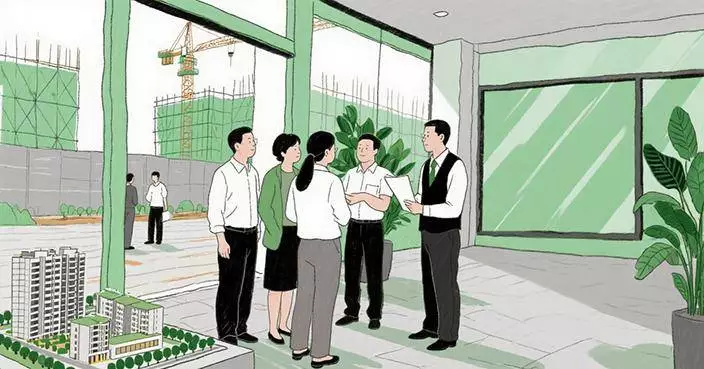
Labour Department Investigates Fatal Construction Accident in Kai Tak, Urges Enhanced Safety Measures
- Fatal Traffic Accident in Sham Shui Po Claims Life of 48-Year-Old Driver
- Chan Kin-por Suspends Public Roles to Focus on Wang Fuk Court Fire Investigation
- Hong Kong court hears arguments on sentencing of former publisher Jimmy Lai; no decision yet
- Civil Aviation Department Completes Successful Aeronautical Search and Rescue Exercise Near Lantau Island
- HKMA Warns Public About Scams Involving Fraudulent Bank Websites and Phishing Emails
- No New Chikungunya Fever Cases Reported in Hong Kong; Authorities Enhance Mosquito Control Measures
- Hong Kong Launches Special Care Dental Services Coordinating Committee to Enhance Oral Health for Targeted Groups
- Centre for Health Protection Reports Two Legionnaires' Disease Cases, Urges Public to Maintain Water Systems
- FEHD Launches Anti-Rodent Partner Awards 2026, Inviting Nominations Until February 11

Death toll in central Philippine landfill collapse rises to eight
- Iranian foreign minister says situation "fully under control," accuses Israeli intelligence of stoking unrest
- Venezuelan acting president calls for national unity amid complex situation
- Danish expert urges global response to U.S. threat over Greenland
- US military action against Venezuela draws widespread condemnation
- U.S. Fed Chair Powell under investigation
- China to roll out new policy package to further boost consumption, expand domestic market
- Chicago's South Side suffers lingering impacts of racist 'redlining' practices
- China's navy hospital ship arrives in Brazil for friendly visit
- Festive demand boosts sales of flowers, dragon lanterns ahead of Spring Festival
Category · News

Variawa's incredible comeback snatches stage in Dakar Rally and Benavides rides to another win

Cuba's president says no current talks with the US following Trump's threats

Rolland Courbis, a passionate figure in French soccer, dies at 72

The Latest: Trump says Iran proposed negotiations as hundreds killed in protests

The Latest: DOJ subpoenas central bank and threatens criminal indictment, Fed Chair Powell says

X-Caliber Closes $182.2MM Rural PACE-X Financing for Ground-Up Construction of Ultra-Luxury Ski Community in Park City, Utah

NBCUniversal and Graebel Win Silver in Brandon Hall Group’s Excellence in Action Awards

NVISAGE Technologies to Present Complete Golf Launch Monitor Lineup at PGA Show 2026

Trump's legal attack on Powell underscores his aim for full control over Fed

Labour Department Investigates Fatal Construction Accident in Kai Tak, Urges Enhanced Safety Measures

Celebrity birthdays for the week of Jan. 18-24 includes Mariska Hargitay and Dolly Parton

Stocks of credit card companies slump as Wall Street overall drifts in mixed trading

Unfair to describe Arsenal as 'Set Piece FC,' says Chelsea coach Rosenior

FIFA deepens World Cup ties to betting industry with deal that includes streaming games
China welcomes foreign enterprises, long-term capital to continue expanding investment in China: vice premier
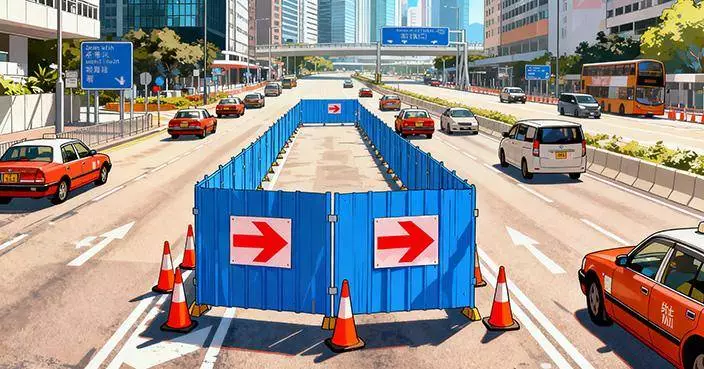
Fatal Traffic Accident in Sham Shui Po Claims Life of 48-Year-Old Driver

Multiply Labs to Bring “Physical AI” Robotics Technology to Advanced Biomanufacturing With NVIDIA

OutSystems Welcomes SaaS Veteran Fay Sien Goon as Chief Financial Officer

With McKenna as the top prospect, NHL chooses Buffalo Sabres to host draft in June, AP source says

What to know about Trump's mid-decade redistricting push ahead of the congressional elections

CRN Recognizes Hammerspace for AI Training and Inferencing Performance on 2026 Cloud 100 List

USWNT captain Lindsey Heaps set to join the expansion Denver Summit

Texas Trust Credit Union Named to Newsweek’s ‘America’s Best Regional Banks and Credit Unions 2026’ List

How to watch the 2026 Australian Open on TV, the schedule, seedings and more
China, Canada should leverage complementarity for mutual benefit: former Canadian PM

Michigan's lieutenant governor drops gubernatorial bid and launches campaign for secretary of state

Field Medical to Present at the 44th Annual J.P. Morgan Healthcare Conference

Relativity Launches aiR for Case Strategy, Bringing Generative AI to Case Intelligence

Inside the Golden Globes: The reunions and moments the telecast didn't show

Thousands of nurses go on strike at several major New York City hospitals

Factor Makes Retail Debut with Launch in Target Stores across the Midwest

Trump says Iran wants to negotiate as the death toll in protests rises to at least 572

Vizient Clinical Data Base recognized as one of Modern Healthcare’s Best in Business
Death toll in central Philippine landfill collapse rises to eight

GitLab Appoints Siva Padisetty as Chief Technology Officer

1Password Appoints Nancy Wang as Chief Technology Officer to Lead AI Strategy

The Knot Worldwide Appoints Michael Pickrum as Chief Financial Officer

Tractor Supply Reaches Major Milestone With Grand Opening of 2,400th Store

Koch Companies Acquires Store Opening Solutions (SOS)
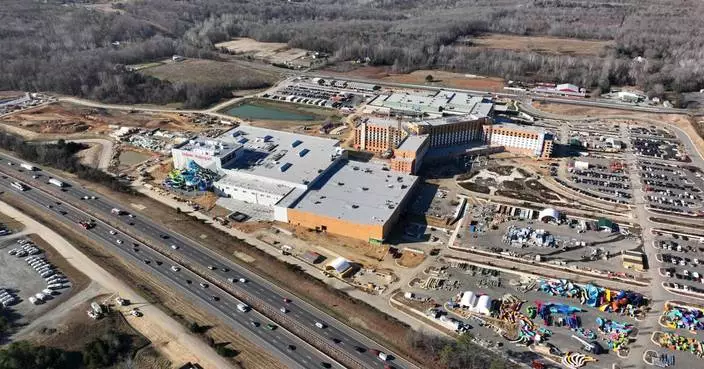
Kalahari Resorts & Conventions to Open Bookings January 12, 2026 for New Virginia Resort in Spotsylvania

Hang Lung Enters the Next Phase in Its Sustainability Journey with Ambitious New Targets

Pope Leo XIV meets with Venezuelan opposition leader María Corina Machado in a surprise audience

Malaysia and Indonesia become the first countries to block Musk’s Grok over sexualized AI images

New Clinical Study Publication Validates Respiratory Outcomes for the Onera Home-polysomnography System

Renata Medical Appoints Renowned Pediatric Interventional Cardiologist Dr. Evan Zahn as Chief Medical Officer

Former Polish justice minister who faces prosecution at home says he's received asylum in Hungary

BioMed Realty and TransMedics Announce 498,000-Square-Foot Lease at Assembly Innovation Park

DAR GLOBAL AND THE TRUMP ORGANISATION EXPAND SAUDI PORTFOLIO WITH USD 1BN TRUMP PLAZA JEDDAH

Largo Announces Copper Mineralization Studies Across its Maracás Menchen Vanadium Deposits; Extends US$6 Million Secured Loan

Sleep Number Introduces ComfortMode™ Mattress: Premium Comfort at an Affordable Price

Abridge and Availity Collaborate to Redefine Payer-Provider Synergy at the Point of Conversation

Curi Bio Launches Asia-Pacific Hub, Delivering Greater Support to its Growing APAC Business

L'OCCITANE Group celebrates 50 years of L'Occitane en Provence

Plume Acquires Sweepr to Deliver AI-Orchestrated Customer Experience Platform to ISPs Globally

Xi'an Kicks Off 2026 Chang'an Lantern Festival with Epic Light Spectacles to Spring

BBSB International Limited announces its subscription results; Recorded approximately 10,745 times of over-subscription for its Public Offer

XTransfer Debuts at the CES in Vegas
China, EU agree on price undertaking guidance for Chinese electric vehicle exporters: commerce ministry

What to know about the Uvalde school shooting trial as it heads into its second week

Muhammad Ali will be honored with a commemorative US postage stamp

Mitsubishi Corporation Joins Starlab as Major Space Station Customer

Kobo Delivers Significant Progress at its Kossou Gold Project in 2025, Establishes a Scalable West African Gold Platform for 2026 and Hosted the 2nd Annual Kobo Cup
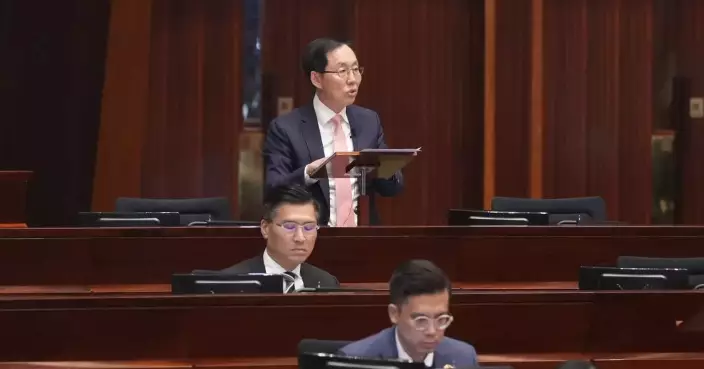
Chan Kin-por Suspends Public Roles to Focus on Wang Fuk Court Fire Investigation

Vibrant Therapeutics Raises $61M and Appoints Han Lee, Ph.D. as Co-CEO

Racing across frozen rivers, uniting youth worldwide: a glimpse into HIT's inaugural ice dragon boat race with Oxford and Cambridge
Xi urges advancing Party self-governance with higher standards, more concrete measures

Organizers condemn 'unacceptable behavior of players and officials' after fighting at Africa Cup

Henry Schein Names Frederick M. Lowery as Chief Executive Officer

Everseen Unveils Everact: The First Agentic AI Platform for Conversational Retail Intelligence
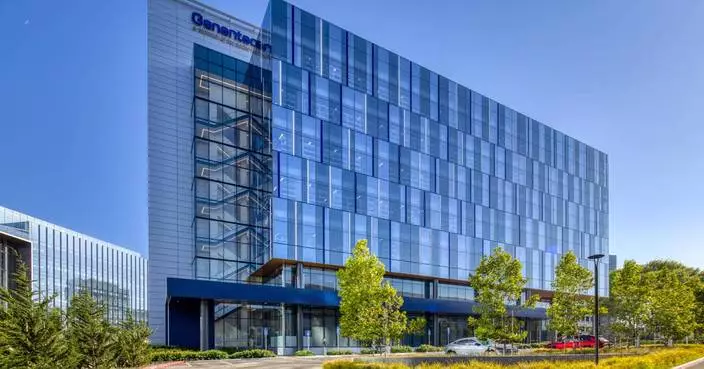
Healthpeak Properties Announces $925 Million of Transaction Activity

LambdaTest Rebrands to TestMu AI, the World's First Agentic Quality Engineering Platform for Fully Autonomous Testing

ShareBuilder 401k Empowers the Self-Employed With Free Solo 401(k) Setup to Start the New Year

Hong Kong court hears arguments on sentencing of former publisher Jimmy Lai; no decision yet

Crans-Montana set to host Olympic ski races in Switzerland bid for 2038 Winter Games
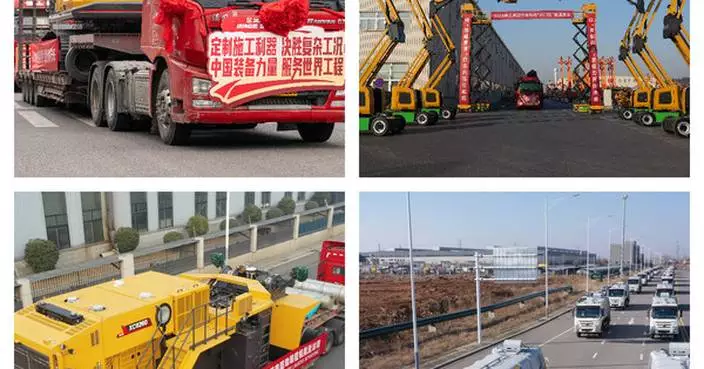
XCMG gets off to a flying start in 2026 with multiple deliveries to international markets

Circle K Helps Customers Recover from Holiday Spending with 40 Cents off Per Gallon on Jan. 15

MedaSystems Reports Breakthrough Year of Global Growth, Clinical Trust, and Platform Expansion

e.l.f. Cosmetics and Liquid Death Drop Limited-Edition “Lip Embalms”

PlusAI Launches Southern Europe’s First Autonomous Trucking Program with IVECO

Matthew Stafford ends record-tying longest wait for first-team AP NFL All-Pro honor

Defending Super Bowl champion Eagles flop against 49ers, could lead to staff changes

LEGO® Education Announces Hands-on Computer Science & AI Learning Solution

Civil Aviation Department Completes Successful Aeronautical Search and Rescue Exercise Near Lantau Island

Apex AI brings global automation capability to Australia's scaling startups




